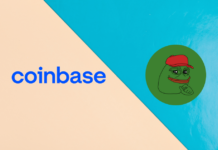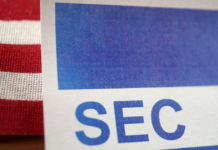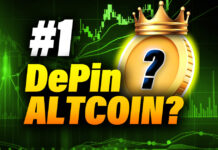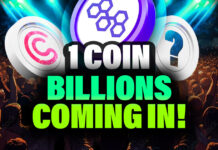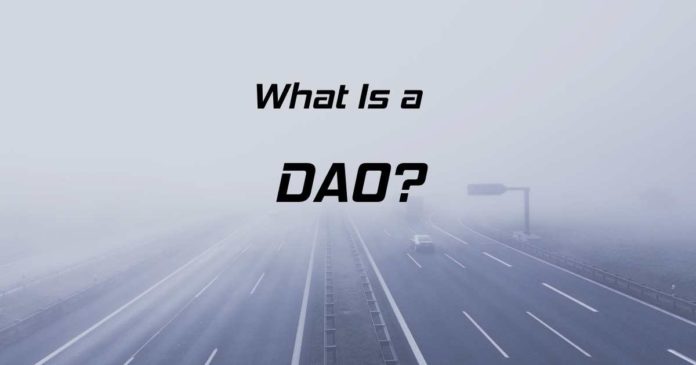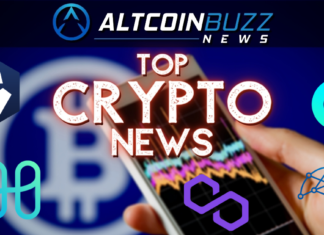The core concept of Blockchain is decentralization. And many blockchain-based projects are decentralized. What does that mean? It means the protocol data, servers, validators, users, community members are all spread across the world. They are not restricted by geographical boundaries. With such a vast difference in location, how and who will work on the growth and regular operation of the protocol. Keeping this scenario in mind, we have the concept of the DAO.
Table of Contents
What Is DAO?
Decentralized Autonomous Organizations or DAOs are user communities that work together towards a common goal of their community/ organization growth and management. DAO members are often spread across the world. Unlike traditional organizations, there is no central authority that builds rules for the company and runs the business and management.
The DAO members are users who hold the platform native token. Users holding any amount of token can participate in voting. However, note that your voting power is directly proportional to your token holding. The more tokens you hold, the more will be your voting power, and you will receive more benefits.
The core component of a DAO is its underlying smart contract, which defines the organization’s rules. DAO token holders decide the rules. Community members set up a proposal for any changes/upgrades that they would like to see on the platform. Stakeholders then vote (for/against) on these proposals. The change happens if the majority of stakeholders vote in favor of the proposal.
The DAO generally has a Web3 account to fund its protocol management. These DAOs use an incentive model to reward their stakeholders. Since the entire system works off of a smart contract that makes the system transparent and secure.
Difference between DAO and Traditional Organization
The major difference between traditional organizations and DAO is the point of centralization. While most of the traditional organizations have a single person in charge and follow a hierarchical structure, the DAO does not. Its stakeholders manage it even across many time zones. Unlike traditional business where critical decisions come from the business head, the DAO requires a proposal and vote by the majority of stakeholders to implement it. Traditional businesses give priority to only major stakeholders while making decisions for the business, whereas in DAO’s token holders with any amount can cast their vote. Since DAO is based on blockchain, the entire transaction or system is transparent and public. On the other hand, most decisions made by traditional businesses are private and they disclose only a little information to the public.
Benefits of DAO
- Decentralization- No central authority unlike the traditional organization
- Community-Driven- Protocol decisions come from the entire community
- Global- Token holders from all over the world can participate
- Transparent- Rules are code in the form of smart contracts
- Permissionless- Easy to raise funds via DAO as compared to raising fiat via traditional banks
- No human intervention
Potential Barrier In The Adoption Of DAO’s
DAOs help in bringing democracy to blockchain projects. However, a few areas could create obstacles to its rapid adoption:
Legal Framework- It is easy to define legal parameters on centralized businesses operating in a single or few countries. However, with such a global user base, creating an accurate legal framework is difficult.
Technically Complex- Not every user holding a huge token participates in voting. Sometimes they do not understand the technical impact of the proposal if implemented or they simply want to invest. In either case, the very concept of decentralization is slightly compromised.
Cost- Most of the DAOs are based on Ethereum (other networks are implementing) network that charges high network fees
Hacks- The major issue with the blockchain projects is that the source code is open making it prone to security attacks. One such attack hit the Ethereum network when they launched their first DAO, the Genesis DAO in 2016, and it was hacked within one month.
Dispute Resolution- The DAO community should provide resolution services in case of a dispute.
How To Join A DAO
Ethereum is the first blockchain network that brought the concept of DAO to the masses. And that is why most of them are on the Ethereum network. However, other networks are also slowly implementing DAOs. It is an easy implementation for networks that support smart contracts.
To participate in a DAO, all you need is a Web3 wallet (like Metamask) with some platform native token. Holding the community native token is mandatory as it gives you access to proposal voting along with other benefits (incentives).
There are no such token holding criteria for users to make them eligible for voting. However, the higher the amount of token you hold, the more will be your voting power.
DAOs are still in their infancy stage. Projects planning to implement it need to set up strong technical and security measures to build a concrete system. Overall, the future of DAOs is bright, and it aims to bring loyal community members together towards working on the protocol growth.
Also, join us on Telegram to receive free trading signals.
For more cryptocurrency news, check out the Altcoin Buzz YouTube channel.




